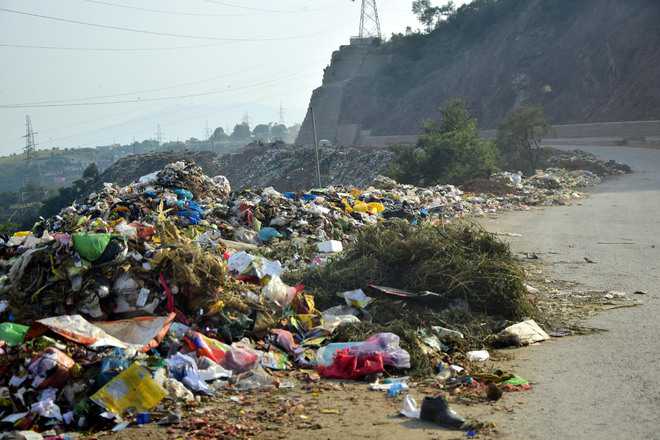DC asked to effect recovery as arrears of land revenue
Officer acting as obstacle in implementing NGT directions
Mohinder Verma
JAMMU, Jan 22: Taking serious note of the failure of the Chief Executive Officer (CEO) of Municipal Council Udhampur to pay Rs 1.39 crore Environmental Compensation within the stipulated time-frame, the Jammu and Kashmir Pollution Control Board has asked the Deputy Commissioner Udhampur to recover the amount along with the interest as arrears of land revenue so that directions of the National Green Tribunal are implemented in letter and spirit.
The National Green Tribunal (NGT) while dealing with a case titled Paryavaran Suraksha Samiti and Another Versus Union of India and Others had decided to levy Environmental Compensation under the ‘Polluter Pays Principle’. The Tribunal even prepared formula for working out the compensation for polluting environment through effluents, municipal solid waste and sewage etc.
On the basis of the reports about illegal and unscientific dumping and disposal of solid waste by the Municipal Council Udhampur, the Pollution Control Board took up the issue with the Deputy Commissioner Udhampur and Chief Executive Officer of Udhampur Municipal Council through series of communications.
However, there was no positive response and reckless handling and disposal of solid waste on the hill slopes alongside National Highway continued besides putting a part of the waste to fire intermittently in brazen violation of the directions of the NGT.
Accordingly, in terms of the NGT directions and on the basis of approved mechanism provided by the Central Pollution Control Board (CPCB), Environmental Compensation to the tune of Rs 1.39 crore was imposed on the Chief Executive Officer (CEO) Municipal Council Udhampur Santosh Kotwal vide Order No.25 SPCB of 2019 dated November 21, 2019 for violation of Solid Waste Management Rules, 2016 and the directions of the NGT.
A period of 45 days was provided to the CEO Municipal Council Udhampur for depositing the amount in the online bank account of the Pollution Control Board failing which interest at the rate of 12% on the compensation amount shall accrue at his own risk and responsibility. However, the CEO has failed to pay the Environmental Compensation within the stipulated time-frame, official sources told EXCELSIOR.
The defiance on the part of the CEO of the Municipal Council has compelled the Pollution Control Board to exercise powers under Section 5 of the Environmental (Protection) Act, 1986 read with Section 33(A) and 31 (A) of the Water (Prevention and Control of Pollution) Act, 1974 and Air (Prevention and Control of Pollution) Act, 1981 respectively.
While exercising these powers, the Pollution Control Board has directed the Deputy Commissioner/ District Magistrate Udhampur to recover the Environmental Compensation to the tune of Rs 1.39 crore with interest at the rate of 12% from January 6, 2010 when the period of 45 days lapsed as arrears of land revenue from the CEO and deposit the same in the online bank account of the Board immediately.
“The Chief Executive Officer of the Municipal Council Udhampur is acting as obstacle in the implementation of the National Green Tribunal directions, which otherwise are aimed at checking environment, air and water pollution”, sources regretted, adding “right from the issuance of notice by the Pollution Control Board the CEO has adopted non-cooperative attitude as if checking pollution of environment is his least priority”.
They further said, “the shocking aspect is that even those at the helm of affairs in the Housing and Urban Development Department never made efforts to put an end to the illegal and unscientific dumping and disposal of solid waste by the Municipal Council Udhampur although information in this regard was furnished to them by the Pollution Control Board much before the imposition of Rs 1.39 crore Environmental Compensation”.
It is pertinent to mention here that the formula for Environmental Compensation approved by the National Green Tribunal incorporates the anticipated severity of environmental pollution in terms of Pollution Index, duration of violation in terms of number of days, scale of operation in terms of micro/small/medium/large industry and location in terms of proximity to the large habitations.


